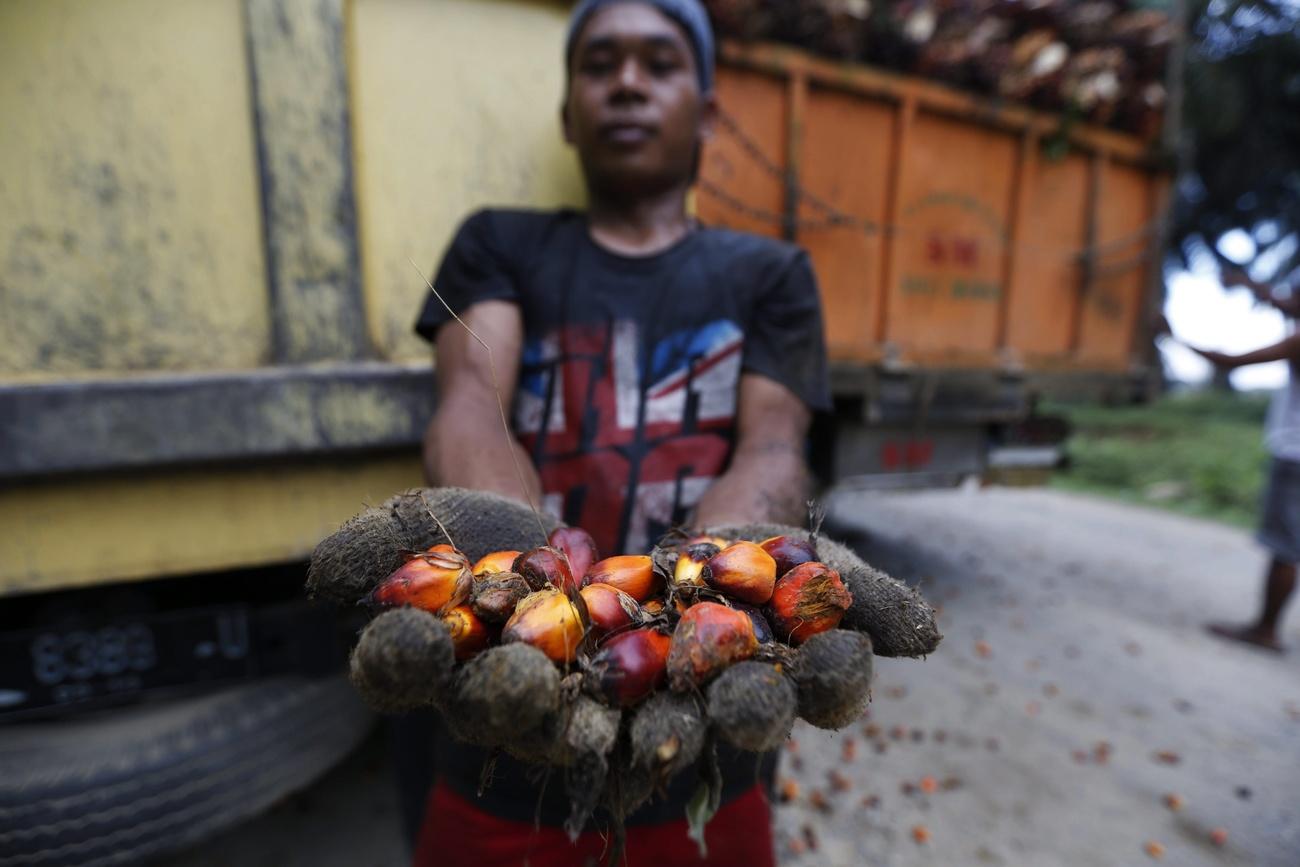
Nestlé accused of sourcing palm oil linked to forest fires in Indonesia

The environmental group Greenpeace claims that the Swiss food giant procured palm oil from suppliers linked to around 9,700 fire hotspots in Indonesia this year.
A Greenpeace reportExternal link released on Monday examines the supply chain of four major food companies – Nestlé, Unilever, Procter & Gamble and Mondelēz – and compares them to palm oil suppliers that are under investigation for starting illegal fires. Nestlé is accused of being linked to suppliers that are suspected to be behind 9,700 fire hotspots this year.
The multinational is linked to 20 producers that have been sanctioned for illegal fires in Indonesia and to 21 sealed palm oil concessions that directly feed its supply chain in 2019. According to Greenpeace, most fires are likely to be deliberately caused by palm oil producers to clear land for plantations.
“The producer groups responsible include companies convicted by the Indonesian courts or sanctioned by the government, many of which have failed to pay the compensation ordered to restore the burned areas,” says the Greenpeace report.
Indonesia suffered its worst fires in 2015, which cost the economy an estimated $16 billion, compared to $8 billion in palm oil exports that year. The country responded by making companies liable for forest fires in their concessions irrespective of the cause. Despite the measures, the situation in 2019 was almost as bad as in 2015, with 857,000 hectares of land burned by September, resulting in 465 megatonnes of CO2 (close to the United Kingdom’s annual greenhouse gas emissions) released by October.
Nestlé is aware of the Greenpeace report and is investigating whether any of the mills mentioned are in their supply chain.
“We are verifying occurrences of land cleared and burning, as we do for other deforestation clearances. We will immediately cease sourcing from any supplier found to be linked to any deforestation activity,” a spokesperson told swissinfo.ch.
Greenpeace has also accused Nestlé of a lack of transparency in listing its palm oil suppliers. In the case of Indonesian forest fires, problematic suppliers like the Korindo and Salim group were suspended by Nestlé but their subsidiaries PT Mitra Indo Cemerlang (Korindo) and Salim Ivomas Pratama mills (Salim Group) were listed in the company’s supply chain.
“The current mill list on our website reflects our supply chain mapping as of April 2018. Since then, several mills have been suspended or otherwise removed,” says Nestlé.

More
Why Nestlé won’t meet its zero-deforestation pledge

In compliance with the JTI standards
More: SWI swissinfo.ch certified by the Journalism Trust Initiative































You can find an overview of ongoing debates with our journalists here . Please join us!
If you want to start a conversation about a topic raised in this article or want to report factual errors, email us at english@swissinfo.ch.